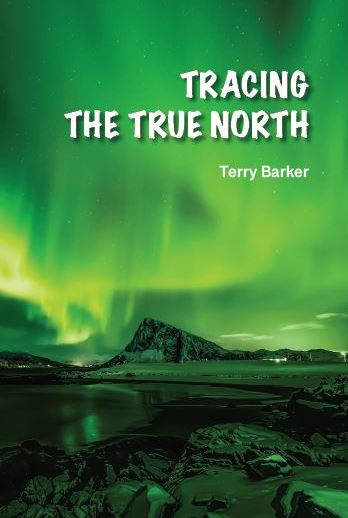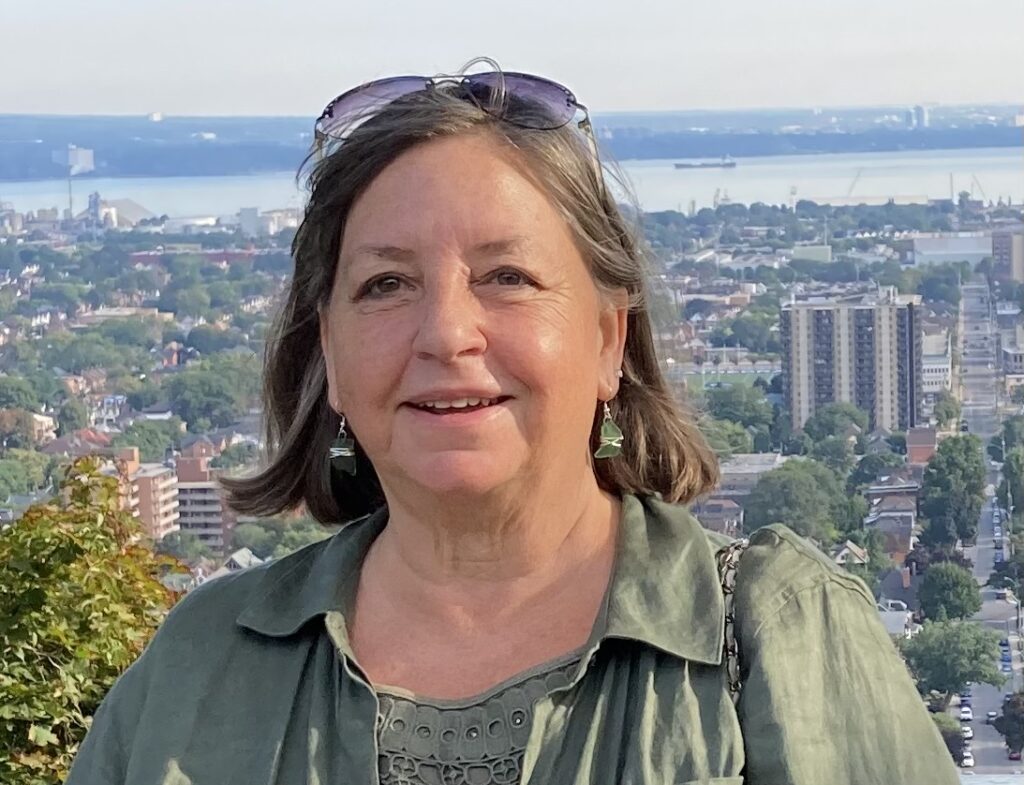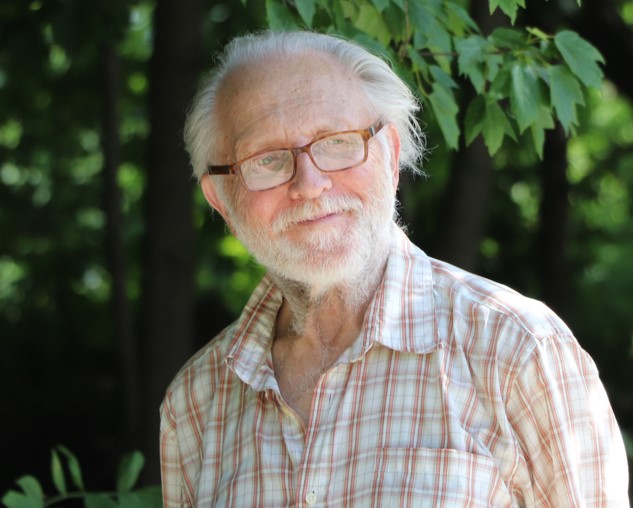

Tracing the True North
book review (in Canadian Stories #151)

Publisher: SureWay Press, 2022
ISBN: 978-0-9739148-5-6
Terry Barker, author of Tracing the True North, was born in London, England, in 1943. Of English and Irish heritage, he moved at a young age, in 1952, to Gravenhurst, Muskoka, Canada, together with his mother who was a war widow. He received his education at Oxford University (Political Theory and Philosophy), McMaster University, York University (Toronto), and Toronto Teachers’ College. Professionally, he was a teacher at the elementary, secondary, and community college levels (Canadian Studies, including Pre-University students). He has authored three collections of essays on Canadian People’s Poetry. Currently Toronto based, he is a researcher, writer, and speaker on the relationship between Modern and “Classic and Christian” Philosophy. Tracing The True North (3rd Edition, 2022), published by SureWay Press, Mississauga, Ontario, Canada, is Barker’s most recent book.
Tracing The True North gives a fresh perspective on the origins of Canadian History. It is asserted by Barker in his Preface, “The ‘Saguenay’ story was the cultural memory of the Indigenous-Norse trade interactions in North-East North America after approximately 1,000 AD, which featured the exchange of raw materials and manufactured goods, as well as cultural and religious ideas”, in what is now Eastern Canada. In the account of his research, Barker states that from the perspective of Stephen Leacock (Canadian teacher, political economist, writer, humorist and historian), the ‘Kingdom of the Saguenay’ was the goal of French settlement in the sixteenth century. This area was located approximately around James Bay, Lake St. John, and the Saguenay River, and the lands between them. This theme is indeed what the book covers, as the author discusses the various forms in which this geopolitical concept appears over time from approximately 1,000 AD, and how it played out in various forms in the Canada of 1535, New France of 1608, and at Quebec in 1763, and progressively extended itself into the culture, national identity, philosophy, and religion of our contemporary Canada.
Terry Barker has eloquently provided the reader with a very important book here, one which includes a highly knowledgeable historical study about Canada. The author lists multiple evidences of the great impact of the Indigenous-Norse trade interactions in North-East North America. The book also merges concepts derived from both Viking and Indigenous sources, along with perspectives drawn from Canadian researchers, writers, poets, and poetry to take the reader through the logical steps of a fundamentally more open and perceptive understanding of Canada’s symbol of the ‘True North’. Such an understanding of Canada is helpful in terms of an intellectually more expanded standpoint, of not only historical Canada, but also of modern-day Canada itself. The book is intensely informative, and is written in two detailed essay format sections, with lengthy footnotes for further research.
Section One, “The True North”, is an exact, meticulous narrative about conceptions confirming the Indigenous-Norse connection about the Canadian ‘lost past’ as it relates to the ‘Kingdom of the Saguenay’ notion. Barker here reveals research on how his analysis connects the development of Canada with the work of others such as historian Carl Berger, Charles Sangster (an early Canadian poet), literary and cultural scholars Catherine M. McLay, Carl F. Klinck, Jocelyn Godwin (including in this respect Spiritualist and Psychometric studies), and Madame Blavatsky (the Theosophist) , as well as Lawren Harris (the Group of Seven painter), and more.
Section Two, “Charles Sangster and the True North”, highlights for the reader a wealth of commentaries on solid (although hard to find) source materials about the mysterious beginnings of Canada. Here, Barker includes abundant research on highly leading edge, open, realistic, and imaginative perspectives, including the Theosophical point of view. One key element here is the impact of Charles Sangster, the unofficial pre-Confederation Canadian Poet Laureate. As Barker (quoting a Sangster scholar) explains, “Sangster recognizes both the real world of experience and the world of imagination, so there is a dialectic between the real world as reflection of a higher world, and the imagination’s world as more personally spiritual.” This is Sangster’s unique spin on ‘perception’, which plays out in his vision of truth. The author also shows how some of Sangster’s poetry relates to the ‘Kingdom of the Saguenay’, and the ‘Saguenay Story’ in general, and how that displays a joint Indigenous/Northern European memory. Thus, as one delves deeper into the book, one becomes aware of the Norse-Viking influence as a reality that becomes progressively uncovered, even as it relates to the controversies of the modern day.
Author Barker’s analysis of Canada in Tracing the True North is historically wide-ranging, comprehensive, and exhaustive, and so constitutes the bedrock of a most brilliant, meaningful understanding of our Canadian roots. He has done much research, and furthermore, has embraced the imaginative and intuitive aspects of historical Canada and the Saguenay story. He has delved into relevant poetry, as well as the thoughts of other writers and researchers, along with facets of general history, philosophy, national visions, hopes and achievements, as a means of providing plentiful evidence to confirm his premise that, “Saguenay was the cultural memory of the Indigenous-Norse trade interactions in North-East North America approximately 1,000 AD.” This puts Canadian history on the current intellectual map, in the most open of possible ways.
Tracing The True North, by Terry Barker, is highly-recommended as a much needed, important book about Canadian history, appropriate for our time. Additionally, Tracing The True North can be seen as paramount as a compass toward the ‘True North’, pointing the reader on the way to enhanced knowledge of Canadian history, a possible New Canada, and Canadian identity in this land, our land of the ‘True North strong and free’.
About Canadian Author Deborah A. Morrison
With international recognition Deborah A. Morrison is an Award Winning Author from Hamilton, Ontario, Canada. Deborah writes with the intent to bring the reader an experience of greater PEACE through ** INSPIRATION ** EMPOWERMENT ** ** SELF- DEVELOPMENT **
Deborah achieved an Honours B.A. in Social Sciences, McMaster University, Hamilton, Ontario, Canada, graduating with a major in Religious Studies and a minor in Sociology.
After graduating from McMaster University Deborah achieved a Masters in Counseling Science, Counselor Training Institute (Vancouver, B.C., Canada), as recognized by the A.A.M.F.T., American Association of Marriage and Family Therapists.
She has written numerous published articles on a variety of topics from natural therapies to peace, yoga, philosophy, psychology, and metaphysics. Furthermore, Deborah is the author of a number of multi-genre published books – poetry, fiction and non-fiction. Deborah’s book “Finding Your Center: Explorations in Philosophy, New Physics and Eastern Mysticism” has reached high standing on Book Authority’s best 100 philosophy books of all time!
Deborah describes herself as firstly “a devoted mother and grandmother” and secondly “just a humble wordsmith, contemplating life and enjoying the journey” and envisions a New Earth of PEACE & PROSPERITY for all.
About Canadian Author Terry Barker
Terry Barker was born in London, England, in 1943, and moved to Canada in 1952 with his mother, a war-widow. He was educated at Toronto Teachers’ College and McMaster and Oxford Universities (Political Theory and Philosophy), and taught elementary and junior high school in Toronto, Middle School in Oxford, and Community College (including pre-university) in Toronto. He has authored three collections of essays on the “People’s Poetry” tradition in Canada. He retired from classroom teaching/lecturing in 2013, and he currently lives in Toronto, where he researches, writes and speaks about the relationship between modern ideologies and the “Classic and Christian” philosophical tradition.
